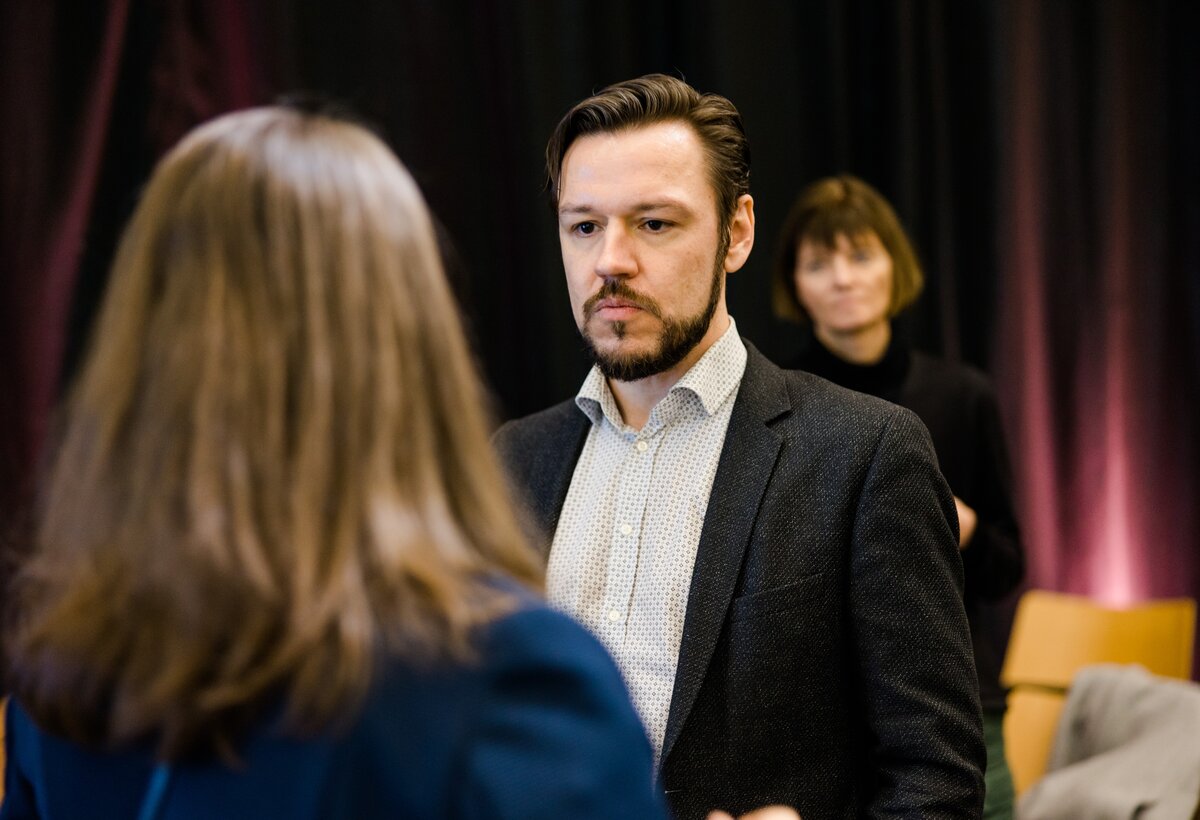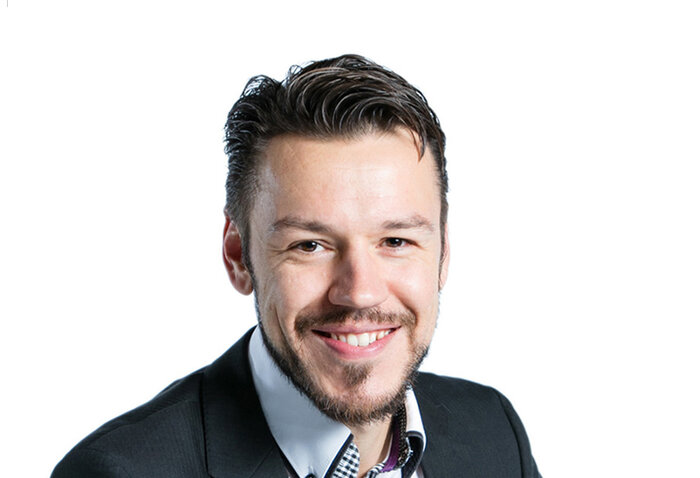Fabian Rebitzer, head of the Empirical Social Sciences research groups, in conversation
As a research assistant, Fabian Rebitzer began his work at the FHV. Today, he leads the Research Group Empirical Social Sciences. With their interdisciplinary work, Fabian and his team contribute to the success of a good life in Vorarlberg.

Fabian, what distinguishes the achievements of the Empirical Social Sciences research groups?
First and foremost, we are characterized by the wide range of psychosocial and socioeconomic topics on which we conduct research. This is also reflected in our diverse methodological expertise, which we need for this. Regionally, we are strongly focused on Vorarlberg and the Lake Constance region. In this spatially limited market, we need to be able to work on a broad range of topics. Our team is interdisciplinary and we often work together with partners: within the university, with practice partners, and also with other universities in the region and across Europe.
As far as I know, the term "interdisciplinary" is not just an empty phrase for your team.
Yes, the team is very heterogeneous. In total, we are twelve: university lecturers and postdocs to scientific and student research associates from very different disciplines - sociology, psychology, Business Administration, health science, nursing science and others. This togetherness is certainly unique in the region, because most of the research institutions have a subject-specific focus. The way we are set up, we can form a tailor-made team for every research assignment in the empirical-social-scientific field, which brings the necessary competences.
But nevertheless, you have defined thematic foci for your work?
That's right. In a participatory process, we have defined five strategic priorities: Arts & Culture, Social Work & Inequality, Health & Care, New Work & Organization and Community Development. These are relevant topics for the social, economic and cultural development of Vorarlberg and the Lake Constance region as a whole, in which we want to make our contribution. We also see ourselves as a "tool" and support Vorarlberg society and politics by providing empirical data as a basis for decisions on measures.
Can you give us concrete examples or projects in this regard?
For example, we are conducting research on behalf of the Vorarlberg state government on the living and income conditions of artists. Or we are currently developing a research project with the working title "Culture Cares". It takes a look at the exciting interface between art & culture and health & care. The plan here is to collaborate with regional health care institutions and Vorarlberg artists.
What is your vision as head of the research groups?
What counts in our field is the constant openness to new impulses, developments and questions in society, and the flexibility to develop appropriate research designs and projects where necessary, even at short notice. We are driven by curiosity about tomorrow and the question of what we can already do for it now. In doing so, we always want to maintain our connection to the state and regional society and make a contribution to a successful, good life in Vorarlberg.
What framework conditions are needed for this, what are the success factors for application-oriented research in this area?
As social scientists we do not need highly technical laboratories, with our heads and computers we are well equipped. But we are dependent on good networks. I am convinced that innovations always emerge from the interstices and not in the established fields. This requires exchange and conversation.
What does the future hold for Empirical Social Sciences? What trends are you observing?
Our research focuses on current social challenges and issues at any given time, which naturally change over time. Issues come and go: Corona has contributed to the polarization of society. Currently, social inequality is growing, and we have a number of projects running on this. We are also concerned with topics such as new images of the family, childcare, and expectations about family and work.
In conclusion, why are young junior scientists:in enthusiastic about Empirical Social Sciences?
This discipline is incredibly exciting. Regularly you face completely new topics, meet new stakeholders with new questions. We always learn something new, it is never more of the same. So it's ideal for people who like to broaden their horizons.
About the person:
Fabian A. Rebitzer, 42, is a native of Constance. After studying sociology and German literature, language as well as media studies at the Christian Albrechts University in Kiel, he worked at the Institute for Social Sciences there. In 2011, he joined the FHV as a research associate for a project on the demand for skilled workers. Since 2020, he has headed the research group Empirical Social Sciences. Fabian is particularly committed to gender equality and diversity and heads the Diversity staff unit. In his private life, Fabian finds balance with his two dogs, working in his small garden or simply with a good book.
Contact
April 2023





